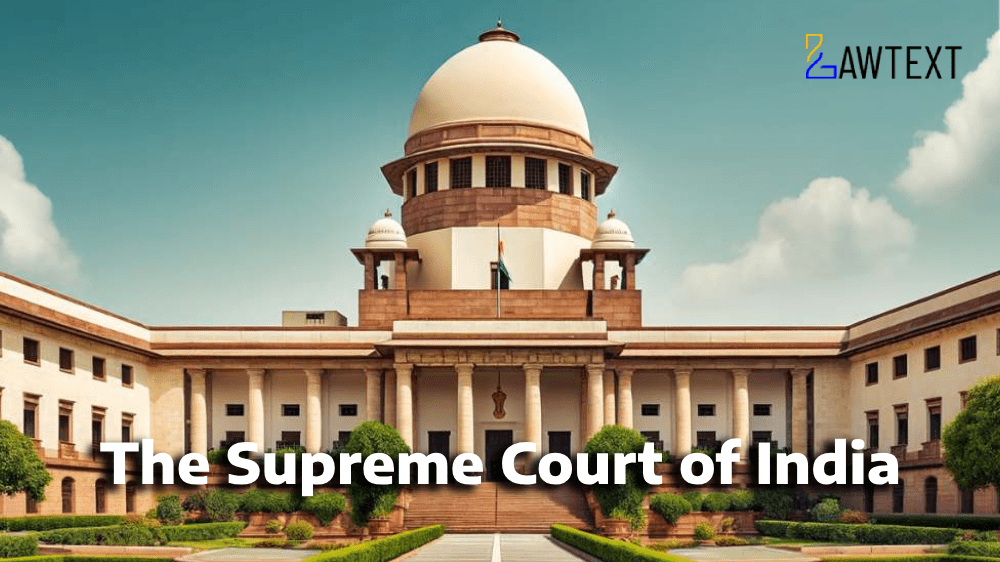Supreme Court Dismisses Appeal Challenging Summoning Under Section 319 CrPC: No Complete Immunity Under Section 132 of Indian Evidence Act. The Supreme Court clarifies that Section 132 of the Indian Evidence Act offers limited immunity, and additional incriminating material can justify prosecution under Section 319 CrPC.

CASE NOTE & SUMMARY
The Supreme Court dismissed the criminal appeal challenging the summoning of the appellant as an accused under Section 319 of the Code of Criminal Procedure, 1973. The appellant contended that he was entitled to protection under Section 132 of the Indian Evidence Act, 1872, as his incriminating statements were made as a witness. However, the Court held that while Section 132 provides protection against prosecution based on self-incriminating statements made as a witness, it does not provide immunity where there is additional independent material. The appellant was summoned based on evidence beyond his own statements, specifically the testimony of PW-1, which indicated forgery and interpolation in a fixed deposit document. The Court concluded that there was prima facie material to justify the appellant's summoning under Section 319 CrPC.
-
Case Background:
- Initial Incident: In 1998, a Fixed Deposit of ₹10 Lakhs was made with a respondent bank by Savitri Shyam (now deceased), who later passed the deposit's management to Shyam Sunder Shyam Sansthan. The appellant, who was working as a cashier, was accused of altering the Fixed Deposit period from 3 to 15 years through forgery.
- Appellant's Role: The appellant initially admitted to having changed the tenure of the deposit during pre-summoning but was not made an accused at that stage.
-
Summoning and Trial:
- In 2022, PW-1/Narendra Singh Parmar testified that the appellant had committed forgery in the fixed deposit document.
- The respondent bank then moved an application under Section 319 CrPC to summon the appellant, which was allowed by the Trial Court on 17.04.2023.
-
Appellant's Argument:
- The appellant argued that under Section 132 of the Indian Evidence Act, 1872, he was protected from prosecution as his incriminating statements were made while he was a witness.
-
Court's Judgment:
- The Supreme Court rejected the appellant’s argument, stating that while Section 132 offers protection from prosecution based on one's testimony, it does not grant immunity when additional evidence implicates the witness. Here, the testimony of PW-1, combined with other evidence, was sufficient for invoking Section 319 CrPC.
Acts and Sections Discussed
- Code of Criminal Procedure, 1973
- Section 319: Allows the court to summon additional accused based on evidence appearing during the trial.
- Indian Evidence Act, 1872
- Section 132: A witness cannot refuse to answer incriminating questions but is protected from prosecution based solely on those answers.
- Constitution of India, Article 20(3):
- Provides protection against self-incrimination, stating that no person accused of an offense shall be compelled to testify against themselves.
Ratio
-
Qualified Privilege Under Section 132: The Court clarified that while Section 132 of the Evidence Act protects witnesses from prosecution based solely on self-incriminating statements, it does not provide blanket immunity if additional independent evidence is available against the witness.
-
Section 319 CrPC: The power to summon additional accused under Section 319 CrPC can be exercised based on new material emerging during the trial, even if the person summoned has previously testified as a witness.
Subject:
- Criminal Law, Forgery, Section 319 CrPC, Section 132 Evidence Act, Summoning Additional Accused, Self-incrimination Protection
ISSUE OF CONSIDERATION
RAGHUVEER SHARAN VERSUS DISTRICT SAHAKARI KRISHI GRAMIN VIKAS BANK & ANR.
Citation: 2024 LawText (SC) (9) 102
Case Number: CRIMINAL APPEAL NO(s). 2764 OF 2024 (Arising out of Special Leave Petition (Crl.) No. 3419 OF 2024)
Date of Decision: 2024-09-10
Case Title: RAGHUVEER SHARAN VERSUS DISTRICT SAHAKARI KRISHI GRAMIN VIKAS BANK & ANR.
Before Judge: (PRASHANT KUMAR MISHRA J. , PRASANNA BHALACHANDRA VARALE J.)
Appellant: RAGHUVEER SHARAN
Respondent: DISTRICT SAHAKARI KRISHI GRAMIN VIKAS BANK & ANR.

